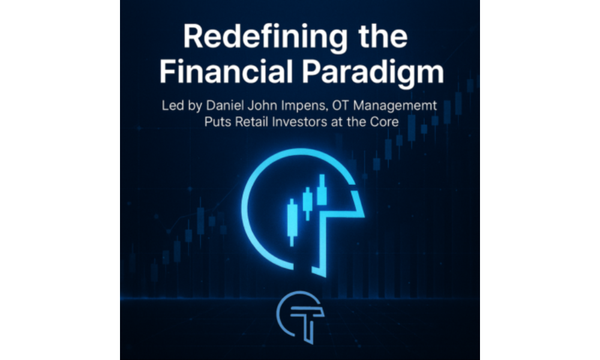SBF Seeks to Block Prosecutor Evidence Requests Ahead of Fraud Trial
Sam Bankman-Fried, founder of the now-defunct crypto exchange FTX, is pushing back against sweeping evidence requests made by federal prosecutors ahead of his high-profile fraud trial in October. His legal team argues the requests are overly broad and prejudicial to his defense. The emerging legal battle over trial evidence and testimony underscores the complexity of the FTX collapse and fraud allegations.
In a recent court filing, SBF's lawyers asked the judge to deny multiple pre-trial motions, known as in limine requests, made by the Department of Justice (DOJ). The prosecutors asked to admit wide categories of evidence and block all of SBF's proposed expert witnesses from testifying. But his lawyers counter that most issues cannot be properly litigated yet and that the DOJ's requests are impractical and unjustified.
The memorandum claims the prosecution wants to paint SBF in a negative light using irrelevant evidence not directly related to the actual charges. It also asserts the DOJ aims to improperly admit broad swaths of hearsay and other questionable evidence. SBF's team argues this would undermine his ability to mount a fair and vigorous legal defense.
However, the DOJ contends its requests are warranted given the massive scope of the alleged fraud and collapse of FTX last November. Prosecutors paint SBF as deceptive and allege he misled investors and mishandled customer funds leading to billions in losses. They likely want to head off attempts by the defense to obfuscate or downplay the scale of losses and harm caused to consumers.
This legal tussle highlights how complex white collar criminal cases can become when sophisticated parties are involved. SBF can afford top-tier legal counsel to combat the vast resources of the federal government. Both sides want to strategically shape the evidence and narrative presented at trial to their advantage.
The core challenge is balancing the pursuit of truth and justice without improperly influencing the jury through emotional appeals or procedural maneuvers. There are rarely simple answers when prosecuting crimes involving complex financial dealings and little physical evidence.
While the prosecutors have a duty to vigorously present their case, the defense deserves a fair chance to rebut and contextualize allegations of wrongdoing. However, SBF also cannot hide behind legal technicalities if compelling evidence of ethical breaches exists. High-stakes cases like this often hinge on judges making wise and nuanced rulings on evidentiary matters.
The road to truth and justice is winding, and no outcome can undo the pain and losses already inflicted. But methodically weighing facts and arguments regarding SBF's alleged actions can help bring resolution and potentially prevent future harms. Though the system is imperfect, soberly reviewing available evidence remains the best recourse society has.
How Could the Trial Outcome Impact the Crypto Industry?
The fraud trial of Sam Bankman-Fried has major implications for the still-young cryptocurrency industry. The outcome could affect:
Regulation - A conviction could spur lawmakers to increase oversight, while an acquittal may relax pressure for stricter rules.
Investor Trust - A guilty verdict affirms harm but builds faith in enforcement, while an acquittal might absolve but still shake confidence.
Innovation - Stricter rules may cool development but also attract institutional capital; lax policy has opposite effects.
Security - More regulation may boost exchange safeguards and deter fraud, but also drive crypto into unregulated shadows.
Volatility - A harsh sentence saps risk appetite but reinforces maturity, while a light punishment might see speculators pile back in.
Adoption - Mainstream embrace depends partly on whether crypto is seen as the "Wild West" or a well-regulated asset class.
The proceedings will likely pressure crypto to increase transparency and compliance regardless. But the precise outcome can tilt the scaling toward either increased oversight or maintained autonomy. Responsible growth depends on balanced evolution, not reactionary lurches in either direction.
Can Crypto Exchanges Implement Controls to Prevent Another FTX-like Collapse?
The implosion of FTX raises questions about ways to improve exchange practices and prevent cascading failures. Though risks remain in crypto's rapid growth, strengthening key areas can help gain legitimacy without curbing innovation:
Enhanced Reserves - Exchanges should maintain reserves well beyond potential client withdrawals to contain panic runs. Partial backing by stablecoins improves stability.
Transparent Audits - Regular transparent audits by reputable firms assure users that assets match liabilities and are properly segregated.
Whitelist Withdrawals - Selectively restricting or staging large or suspicious withdrawal requests during crises can slow bank-run style contagions.
Limited Leverage - Capping leverage substantially cuts risks of liquidation spirals while still allowing sophisticated trading.
Decentralized Storage - Utilizing decentralized custody via multisig wallets improves resilience and reduces misuse of funds.
Prudent Lending - Conservative loan-to-value ratios on lent assets prevent massive shortfalls if coins crash.
Simplified Terms - Clear, simple explanations of risks around staking, lending, and derivative offerings prevent misunderstandings.
No process is foolproof given crypto's volatility and complexity. However, common-sense controls create stability without excessive restriction. Users should demand accountability alongside innovation.




